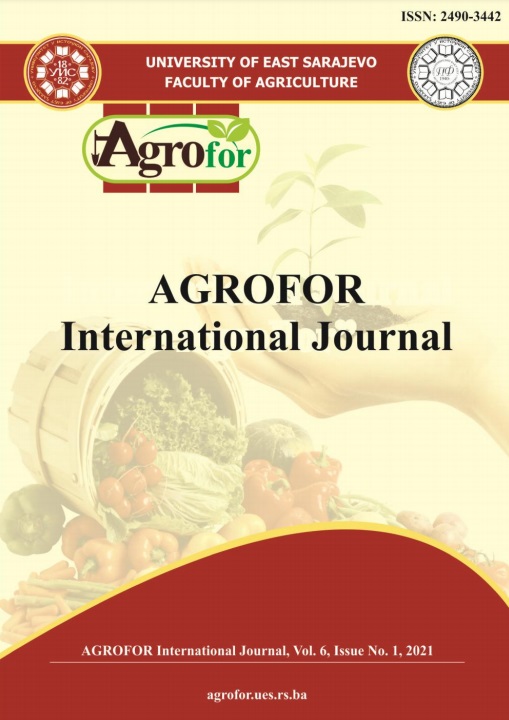CROPS WATER CONSUMPTION AND VERTICAL SOIL MOISTURE EXCHANGE
DOI:
https://doi.org/10.7251/AGRENG2101057MAbstract
A various number of factors, which, in turn, also vary greatly, determines the
process of water consumption. These are meteorological indicators, yield, crop
properties and soil conditions. The values of the water consumption of irrigated
crops (in the operational regime of irrigation in the calculation of the water
balance) are recommended to be determined counting on: the indicators of heat
supply of the territories, that is, the radiation balance; air humidity deficit and
bioclimatic factors of water consumption, taking into account the type and phase of
plants development, the physical condition and the soil moistening. The empirical
method for determining the vertical moisture exchange takes into account the
biological characteristics of crops, the conditions for the heat and moisture
availability of the calculation periods, the power and humidity of the soil layer
under study, the water-physical properties of the ground, and the depth of the
groundwater. It gives reliable results and can be used in calculations of the water
regime in designing and exploitation of the reclamation systems. The groundwater
affects the formation of the soil water regime in the aeration zone. At shallow
occurrence, they increase the humidity in the root layer, which makes it possible to
reduce the irrigation rates and the number of irrigation events. This article
considers the problem of reducing errors and improving existing methods of
calculating water consumption by crops and vertical soil moisture exchange. The
methods of (Shebeko et al., 1980), Rogotskiy (1981) and Pylenok (1985) were
taken as the basis of the research. According to them and empirical formulas
developed by Mazaiski (2002), the calculations of vertical moisture exchange were
made. The empirical method for determining the vertical moisture exchange takes
into account the biological characteristics of crops, the conditions for the heat and
moisture availability of the calculation periods, the power and humidity of the soil
layer under study, the water-physical properties of the ground, and the depth of the
groundwater. It gives reliable results and can be used in calculations of the water
regime in designing and exploitation the reclamation systems.

